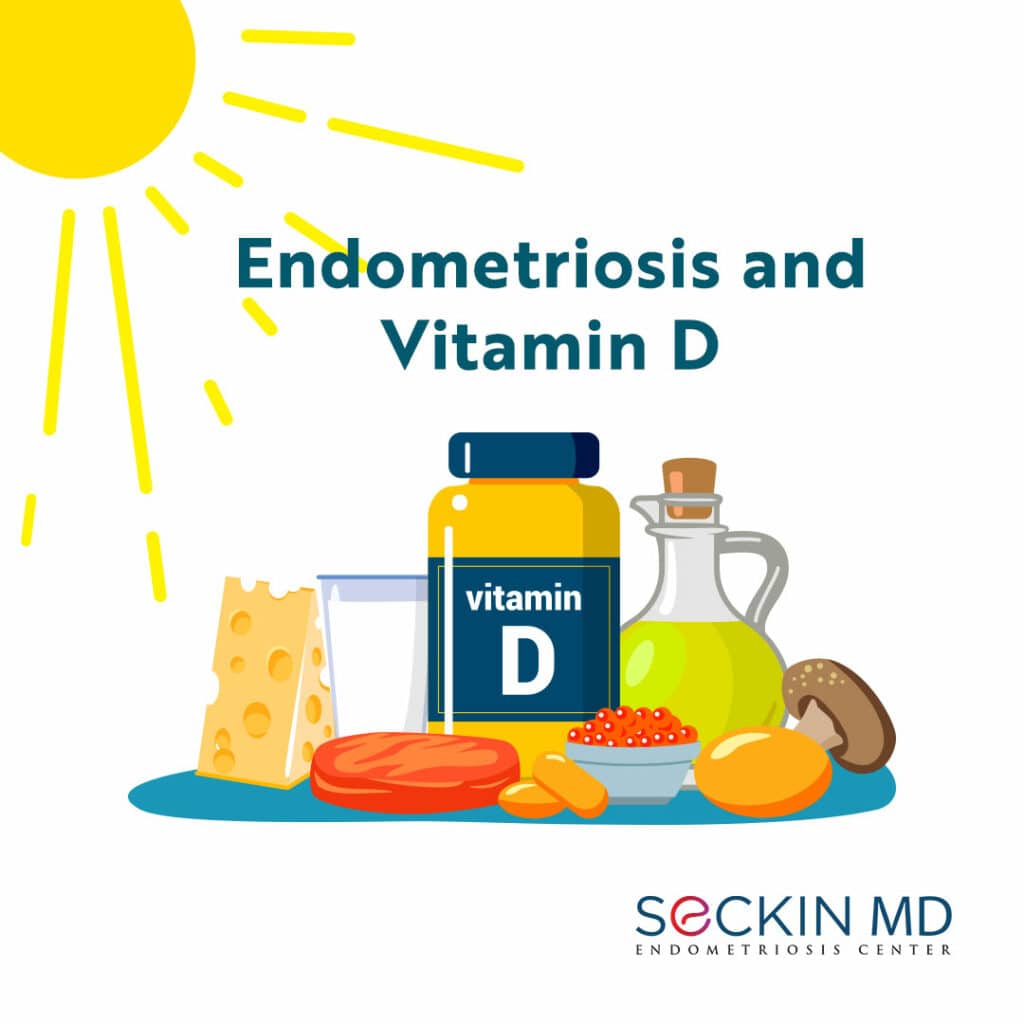Endometriosis and Vitamin D

Endometriosis affects nearly 1 in 10 women of reproductive age and bears significant consequences for fertility and overall quality of life. Despite its prevalence, the exact cause of endometriosis is still not clear and has been the subject of vigorous research. We now know that endometriosis is an inflammatory disease, and vitamin D plays a role in the inflammatory response. Researchers, therefore, think that vitamin D along with its receptor could have a possible role in the pathogenesis of endometriosis.
What is vitamin D?
Vitamin D, or calciferol, is a fat-soluble vitamin that you can obtain via diet and supplementation. The body also makes vitamin D when exposed to ultraviolet (UV) rays from the sunlight.
What are the functions of vitamin D?
Vitamin D primarily helps your body absorb calcium and maintain appropriate amounts of calcium and phosphate in your blood. This is important for bone growth and remodeling. A deficiency of vitamin D causes rickets in children and osteomalacia in adults, in which the bones become brittle or misshapen.
Apart from promoting bone growth, vitamin D plays a vital role in immunity, inflammation, and cell growth. Its deficiency may play a role in heart disease, cancer, and type 1 and type 2 diabetes.
What is the connection between endometriosis and vitamin D?
The exact relationship between vitamin D levels and endometriosis is not clear. However, several studies have shown that levels of vitamin D in serum can be linked to endometriosis.
A 2016 study found that a biologically active form of vitamin D significantly reduced inflammatory responses in human endometriotic stromal cells (ESCs) cultured in vitro. Moreover, the serum levels of vitamin D in patients were significantly lower in those with severe endometriosis than in healthy controls. The authors noted, however, that this could vary by race and other factors such as seasonal changes and phases of the menstrual cycle.
Other studies have been inconclusive in terms of a definitive cause-effect relationship between vitamin D levels and endometriosis.
Does vitamin D have a role in fertility?
Infertility is one of the most common symptoms of endometriosis with nearly 50% of endometriosis patients experiencing it. Studies have shown that vitamin D levels can also have a bearing on the fertility status of women.
This is especially true for women having in vitro fertilization as the outcomes are linked to adequate serum vitamin D levels. In vitro research has also shown that vitamin D supplementation can reduce some of the pathogenic effects in women with polycystic ovarian syndrome (PCOS).
Please note that you should not take any vitamins and supplements before asking a healthcare professional.
Did you know about the possible link between endometriosis and vitamin D? Do you take vitamin D supplements? Please share your story by leaving a comment on our post on Facebook or Instagram
Get a Second Opinion
Our endometriosis specialists are dedicated to providing patients with expert care. Whether you have been diagnosed or are looking to find a doctor, they are ready to help.Our office is located on 872 Fifth Avenue New York, NY 10065.
You may call us at (646) 960-3080 or have your case reviewed by clicking here.